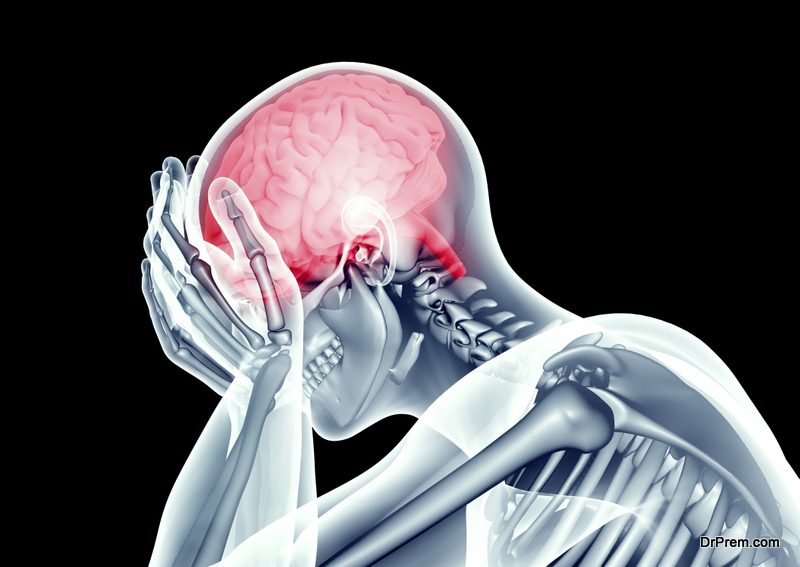With so much emphasis placed on your physical health, people tend to neglect the mental side of things. The old adage, “mind over matter”, doesn’t just play a role in overcoming physical boundaries. It also means that the state of your mental health directly affects your physical well-being. Not only can a healthy mind help you push past barriers and achieve your goals, but it also promotes a healthy heart, immune system, and might even mean less visits to the doctor’s office. Keep reading to discover five reasons why investing in your mental health means investing in yourself!
1. It’s Never Too Late
 They say you can’t teach old dog new tricks. Do you feel stuck in a rut? Are you over the age of 50, or 40 even, and have convinced yourself that you’re too set in your ways to change? Don’t let this negativity keep you from creating a happier, more positive mindframe. While there is truth to the science that a child’s brain absorbs the most knowledge before the age of six and is equally susceptible to traumatic events at this age, it doesn’t mean the possibility of healing is lost.
They say you can’t teach old dog new tricks. Do you feel stuck in a rut? Are you over the age of 50, or 40 even, and have convinced yourself that you’re too set in your ways to change? Don’t let this negativity keep you from creating a happier, more positive mindframe. While there is truth to the science that a child’s brain absorbs the most knowledge before the age of six and is equally susceptible to traumatic events at this age, it doesn’t mean the possibility of healing is lost.
In fact, even adults who’ve experienced strokes can fully recover with enough time, therapy, and dedication. Investing in your mental health isn’t a young man’s game. It’s never too late to take control of your thoughts and feelings.
2. It’s a Great Mood Booster
It’s no secret that exercise is known to improve your mood. Not only are you burning calories, making new friends, and shedding pounds, but the act of exercise actually releases “feel good” chemicals known as endorphins. These chemicals help you feel more positive, focused, and calm. Mental health exercises are equally as powerful. Whether you opt for a yoga class or one of these retreats for meditation, taking some time to quiet your body and mind will do wonders for your overall demeanor.
Meditation and mindfulness are known to help people feel more in control of their minds and bodies. Racing thoughts, an overwhelming amount of tasks on your “to do” list, and the inability to make decisions can all lead to both physical and mental health issues. The purpose of meditation and mindfulness is to help you become more in tune with your thoughts, control your breathing, and calm your mind and body. This helps you feel more positive and promotes healthy blood pressure and may reduce inflammation caused by stress.
3. A Healthy Mind Helps You Maintain a Healthy Body
 One of the most common symptoms associated with mental illness is depression. Depression itself leads to a long list of health complications and may cause feelings of anxiety, paranoia, hopelessness, and isolation. Lack of motivation is another common and potentially dangerous result of prolonged (untreated) depression. When you feel hopeless and removed from the outside world, you often lack the drive to accomplish things.
One of the most common symptoms associated with mental illness is depression. Depression itself leads to a long list of health complications and may cause feelings of anxiety, paranoia, hopelessness, and isolation. Lack of motivation is another common and potentially dangerous result of prolonged (untreated) depression. When you feel hopeless and removed from the outside world, you often lack the drive to accomplish things.
Everyday tasks such as showering, getting the mail, or going to work seem daunting and impossible. If you can’t even find the motivation to complete these simple things, the idea of actually setting and reaching goals seems pointless. Don’t let your mental health stop you from achieving your full potential. Being aware of the warning signs of onset depression or other mental health issues is the first step in taking control of your life and not letting your illness control you.
4. Reduces Stress
One in eight Americans admit to feeling stressed on a regular basis. And no matter how much we tell ourselves to “calm down” or “take a deep breath”, stress can get overwhelming. So much so it’s actually debilitating for some people. Stress is linked to a long list of medical conditions including heart disease, migraines, insomnia, and even diabetes. There are countless ways to reduce stress by investing in your mental health and well-being. Simply utilizing the power of the word “no” is a great place to start. How many times have you committed to something even though you knew you were already spread too thin? Have you taken on extra responsibilities at work or at home, only to find yourself completely overwhelmed? This can lead to an increased heart rate, high blood pressure, dizziness, and even difficulty breathing.
Understand and accept the fact that it’s okay to say “no” once in a while. Your needs and health should be your first priority. Anyone who knows, loves, and values you will understand your need to decline their invitation or request for help. And as hard as it may be, don’t let yourself feel guilty over it. Other ways to reduce stress include finding a job your truly love and enjoy, making time for the things you love (a hobby, being with friends, exercise), and respecting your body’s cues for rest.
5. Mental Illness is on the Rise
 This is a sad but true fact of reality. According to a recent study, over 8 million Americans currently suffer from some type of mental illness. The scarier fact is that this mental illness admittedly impairs a person’s physical well-being. While there’s no one cause for this spike in serious psychological distress (SPD), a few factors come into play. Financial stress, the immense pressure to succeed, and a decline in healthcare services all play a part in the decline of America’s mental well-being.
This is a sad but true fact of reality. According to a recent study, over 8 million Americans currently suffer from some type of mental illness. The scarier fact is that this mental illness admittedly impairs a person’s physical well-being. While there’s no one cause for this spike in serious psychological distress (SPD), a few factors come into play. Financial stress, the immense pressure to succeed, and a decline in healthcare services all play a part in the decline of America’s mental well-being.
The truth remains that anyone can fall victim to mental illness. Traumatic events, a dramatic change in current circumstances, and other life-altering events can all trigger a long list of mental health conditions. Others are predisposed based on genetics and other internal factors. Here’s a short list of the most common mental illnesses currently affecting American adults.
- PTSD (post-traumatic stress disorder)
- Bipolar disorder
- Depression
- Anxiety
- OCD (obsessive compulsive disorder)
- Self-harm
Each of these conditions has its own set of warning signs and symptoms. If you start feeling unusual, notice uncommon behaviors or thoughts, or find that either of these is interfering with your everyday life, it may be time to seek medical help and attention.
Promoting your mental and physical well-being go hand-in-hand. Don’t be fooled into thinking your mental health isn’t as important as your physical. You must invest in both to lead a happy, healthy life. It’s also important to remember that no one is safe from the onset of mental health issues. They don’t always manifest themselves as depression or anxiety. Simply feeling out of control or unmotivated in life in general are signs that your mental health is at risk. Pay close attention to the cues your body gives and invest in your mental well-being today.
Article Submitted By Community Writer




